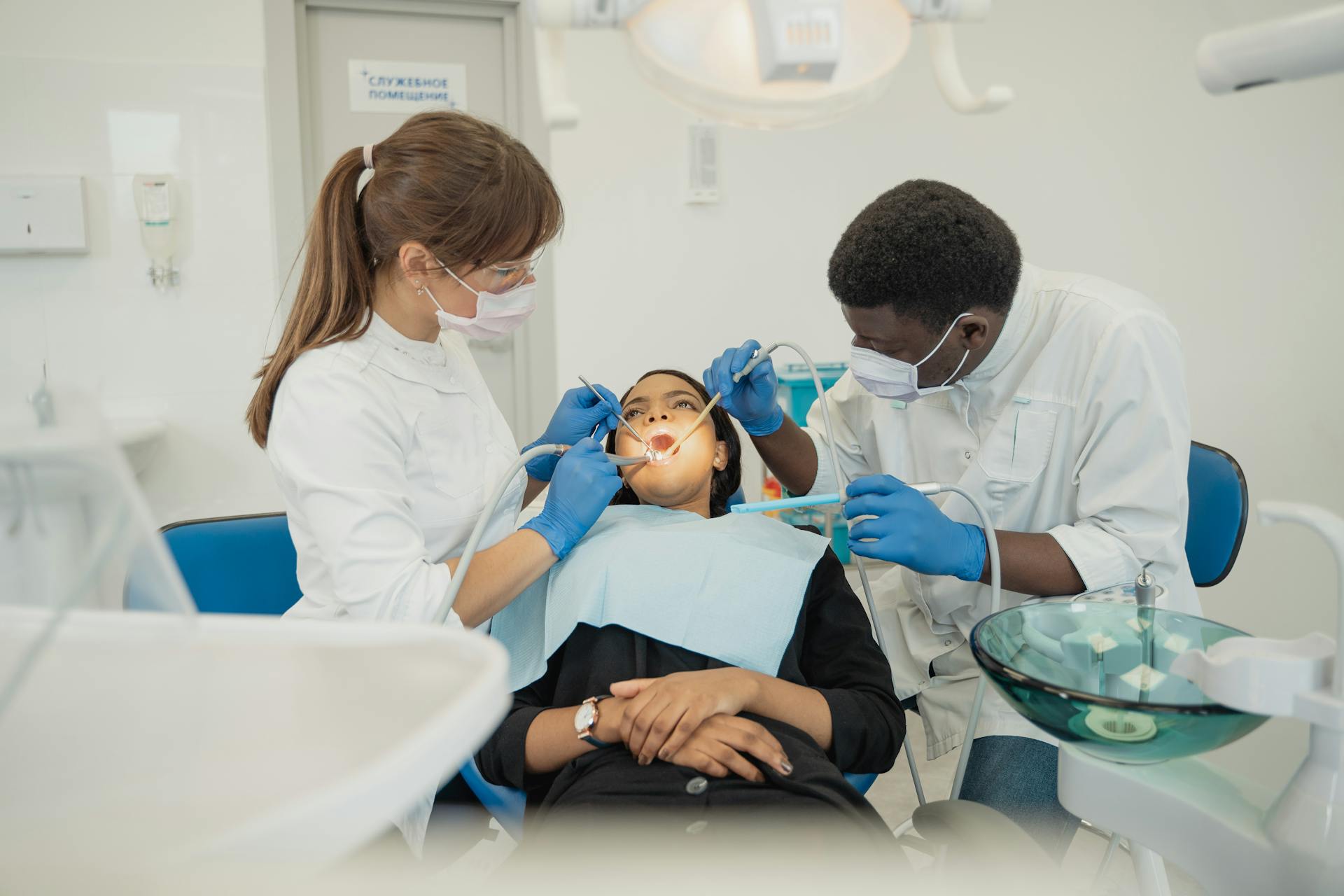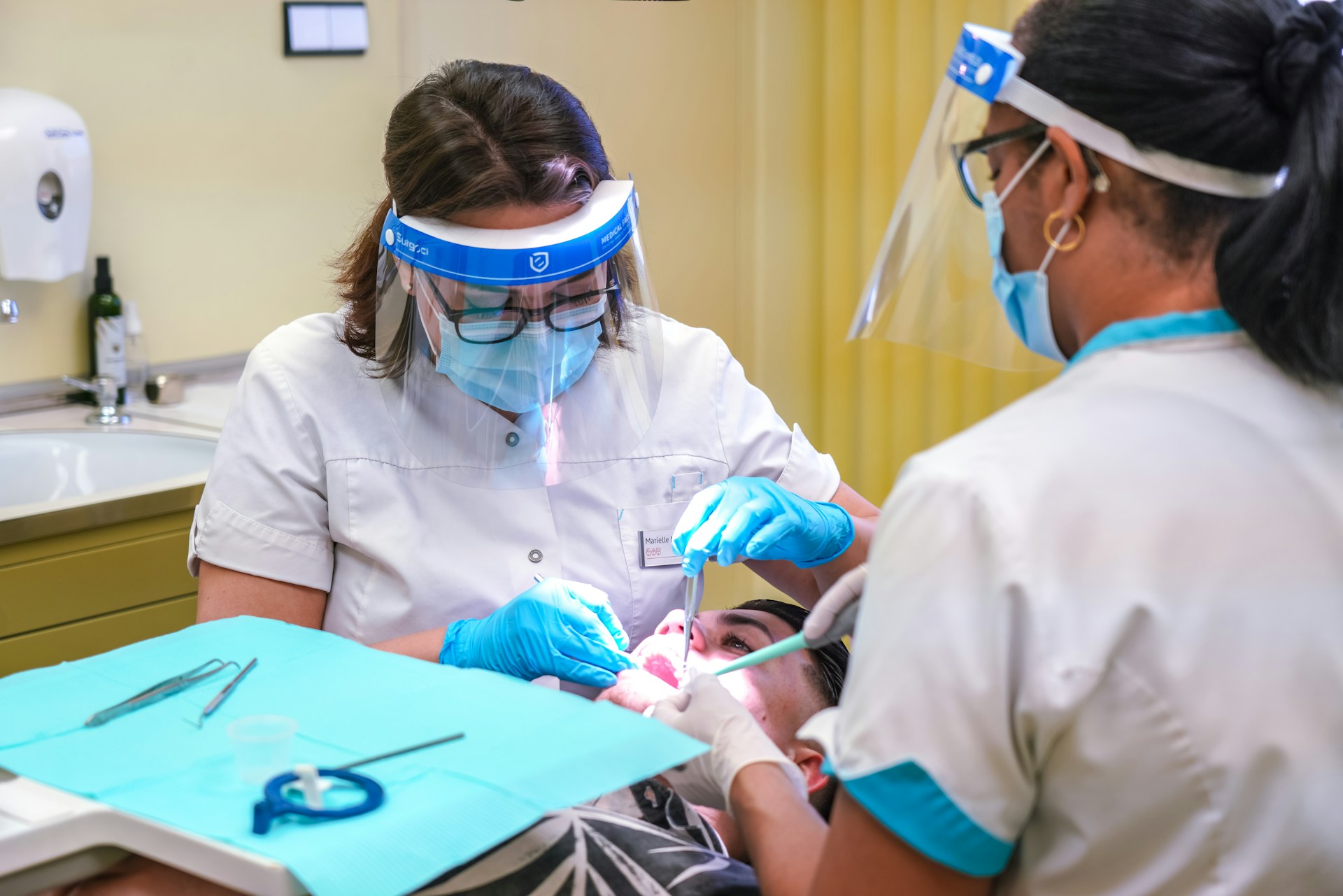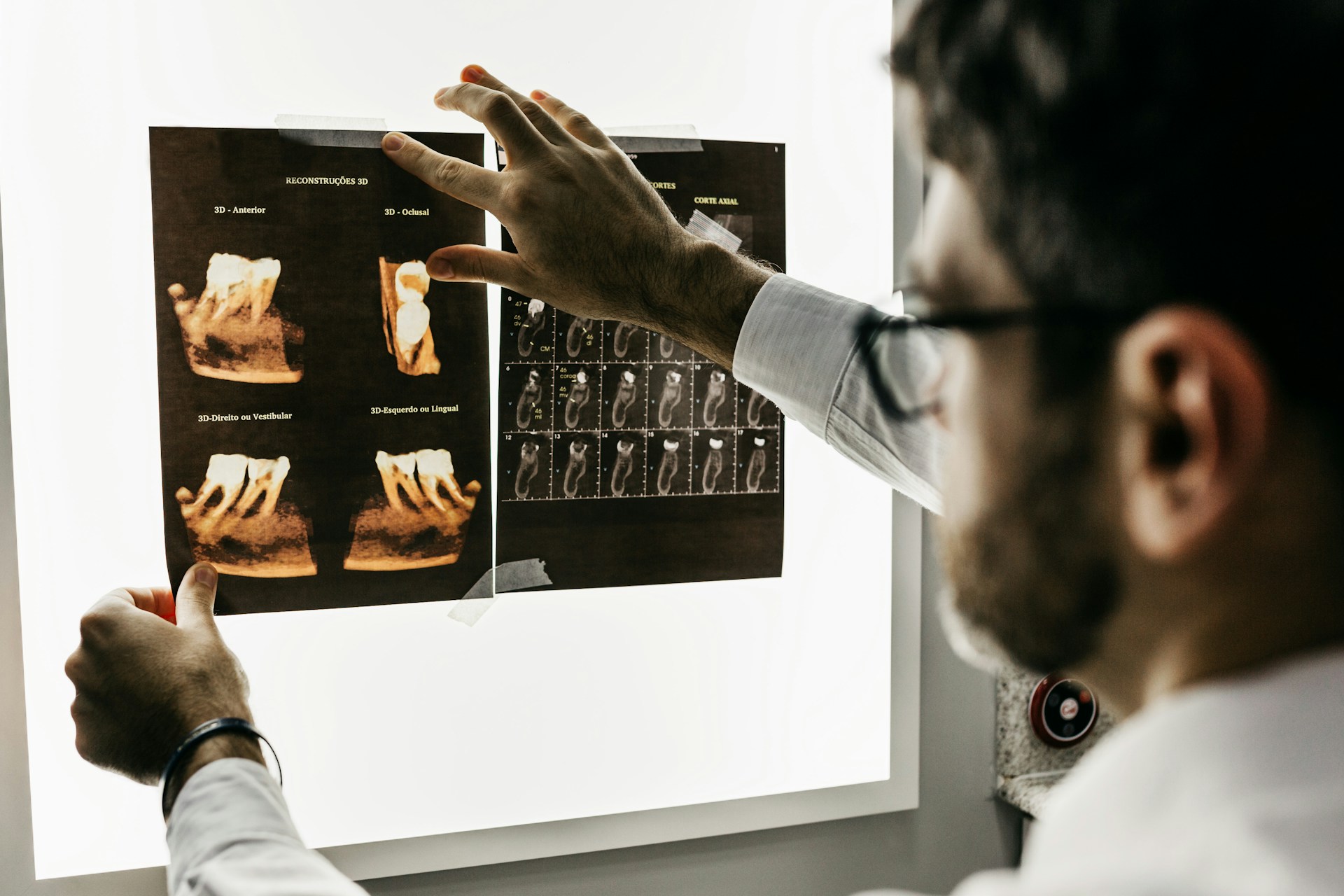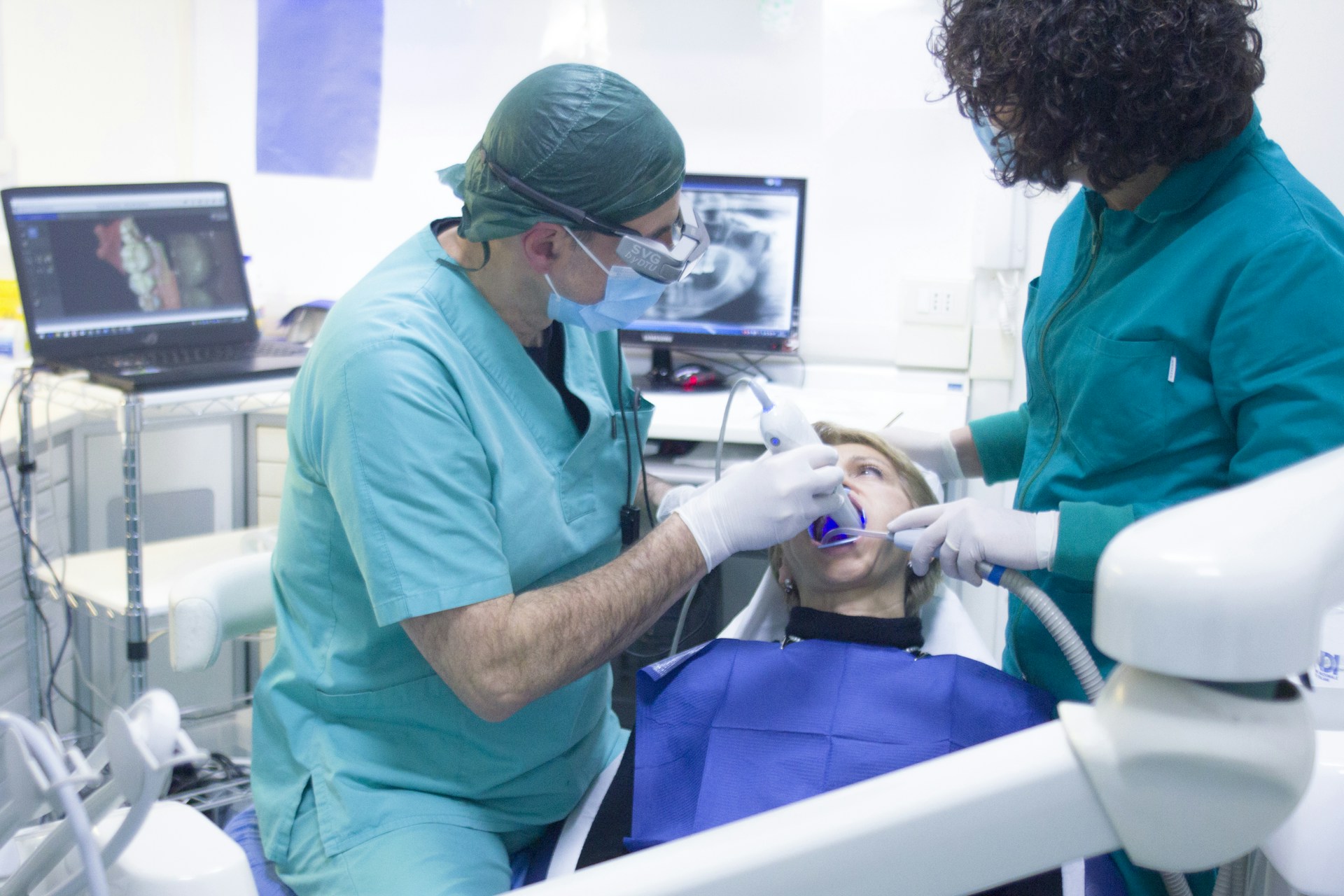What Does a Dental Assistant Do? Job Overview
Whether you think from an aesthetic perspective or a general wellness perspective, you can’t deny that oral health is imperative for your health and confidence! Nothing comes close to flaunting that beautiful smile and pristine teeth, right?
No wonder people visit dental practices and clinics in scores, especially now that we are almost done with an airborne virus that held the globe in a chokehold (the infamous COVID-19). Research shows a good 75% of Canadians visit their dentist every year.

However, do you know who is key to the functioning of these dental clinics besides dentists and hygienists? It’s dental assistants! They are the unsung heroes of the dental office who juggle a variety of tasks to ensure whoever walks into a dental office benefit from their helping hands.
Wondering how? Whether you just want to explore what does a dental assistant do or considering a career in dental assisting and trying to understand dental assistant job duties, this page has all your answers. Read ahead to explore everything from basics to dental assistant career opportunities:
What is a Dental Assistant?
As you step into the world of dentistry, you’ll quickly discover that a dental assistant is an indispensable part of the dental healthcare team. Think of them as the utility players in the dental office, expertly managing multifarious dental assistant tasks to ensure everything runs smoothly.
Research shows that approximately 364,000 dental assistants were employed in the US in 2026 alone, and the number has only been growing since then. BLS data predicts that the employment rate will grow by 8% between 2026 and 2033, indicating a strong demand for these essential professionals.
Definition and General Description
Simply put, a dental assistant is a trained professional who supports dentists in providing quality oral care. Dental assistant responsibilities encompass clinical, patient care, and administrative tasks. From preparing treatment rooms to assisting during procedures, they play a crucial role in creating a positive experience for patients and ensuring smooth workflow in the dental office.
Key Characteristics and Skills Required
If you plan to become a dental assistant and want to thrive in this dynamic role, you’ll need a unique blend of skills and characteristics, some of which are:
-
Strong Communication Skills
You will interact with patients daily, addressing their concerns and explaining procedures. Effective patient communication helps ease patient anxiety and fosters trust, making your role essential in their care journey.
-
Attention to Detail
Precision is key in dentistry. Whether you’re sterilizing instruments or maintaining accurate patient records, your attention to detail will ensure safety and compliance with health regulations. A small oversight can have significant consequences.
-
Technical Proficiency
Familiarity with dental tools and equipment handling is essential. You’ll need to be adept at using various instruments and software systems to facilitate smooth operations.
-
Empathy and Compassion
Patients often feel anxious about dental visits. Research shows that 11 to 22 percent of Canadians have mild to severe dental anxiety. Your compassionate demeanor can provide emotional support, making patients feel more at ease during their appointments. Remember, a friendly smile can go a long way!
-
Organizational Skills
With multiple tasks on your hands, from scheduling appointments to managing inventory, strong organizational skills are vital for maintaining an efficient workflow. You’ll be the glue that holds the practice together.
-
Adaptability
The dental environment can be fast-paced and unpredictable. Being adaptable allows you to handle unexpected situations calmly and effectively, ensuring that patient care remains top-notch.
Primary Responsibilities of a Dental Assistant
While now you know what are some essential dental assistant skills, here are key dental assistant responsibilities:

Patient Care
Dental assistants are often the first point of contact for patients. They ensure that patients feel welcomed and comfortable throughout their visit.
Clinical Tasks
These include preparing instruments and assisting during procedures. Research indicates that effective patient care can significantly improve patient satisfaction and health outcomes.
Administrative Duties
Dental assistants can also help out front desk staff with scheduling appointments, managing patient records, and processing billing information. This multitasking ability allows dentists to focus on delivering high-quality care.
Daily Tasks and Duties
As a dental assistant, your daily tasks and duties will include the following with points about what will constitute performing these duties of dental assistant:
1. Preparing Patients for Dental Procedures
You will be:
- Welcoming patients
- Reviewing medical histories
- Providing comfort measures like blankets or pillows
2. Assisting the Dentist During Treatments
You will be:
- Handing instruments
- Suctioning fluids
- Taking notes on procedures for accurate record-keeping
3. Sterilizing and Organizing Dental Tools
Maintaining a clean environment is paramount. To ensure optimal equipment handling, as a dental assistant, you will be responsible for:
-
Sterilizing Instruments
Cleaning tools according to health regulations and using best sterilization techniques.
-
Organizing Workstations
Ensuring all necessary tools are readily available.
4. Taking and Developing Dental X-rays
Dental assistants often take X-rays and radiography tests to help diagnose issues. They need to be skilled in handling radiographic equipment safely.

5. Maintaining Patient Records
Accurate record-keeping is essential, especially for continuity of care, so you will also be updating treatment notes and managing appointment schedules when performing front office duties.
Dental Assistant Responsibilities in Different Levels
However, not all dental assistants have the same duties. They vary with levels. As a Level I dental assistant, often referred to as a “chairside assistant,” primary dental assistant duties include:
- Preparing patients for procedures
- Charting patient information
- Sterilizing instruments and equipment
- Assisting with basic procedures
When one advances to a Level II dental assistant, responsibilities expand significantly in addition to Level I dental assistant duty including complex tasks such as:
- Taking dental X-rays
- Applying preventive treatments
- Obtaining impressions
- Providing patient education
Essential Skills and Qualifications
To become a successful dental assistant, you need to meet specific dental assistant education and certification requirements and have certain skills. Here’s all you will need to become one:
Required Education and Certifications for Dental Assistants
-
High School Diploma or GED
A high school diploma or equivalent is essential for admission into dental assisting programs.
-
Dental Assisting Program
Completion of a dental assisting program at vocational schools, community colleges, or dental schools is recommended. Programs typically last several months to two years and can lead to a certificate, diploma, or associate degree.
-
Hands-On Experience
Many programs include clinical practice, requiring a minimum of 300 hours of hands-on dental assistant training in a dental office.

-
Certification
While not mandatory in all states and provinces, dental assistant certification from the Dental Assisting National Board (DANB) enhances job prospects and may be required for specific tasks like taking X-rays. Certificates enhance your dental assistant job description seamlessly.
-
State/Province Licensing
Some states/provinces require dental assistants to register with the state/province board of dentistry, comply with Canadian Dental Assisting Regulatory Authorities (CDARA) guidelines, and complete continuing education credits.
-
Continuing Education
Ongoing education is encouraged to stay updated on the latest techniques and technologies in dentistry.
Necessary Technical Skills
Here are some necessary tech skills you will need to have:
- Proficiency in using dental software
- Knowledge of sterilization techniques
- Ability to perform basic laboratory tasks like taking impressions
Interpersonal and Communication Skills
Being personable helps build rapport with patients, making their experience more pleasant. Studies show that effective communication can lead to better patient compliance with treatment plans.
Attention to Detail and Organizational Abilities
These skills are crucial for managing records accurately and ensuring compliance with health regulations.
Work Environment and Conditions

Wondering what is the work environment and what are the conditions like? Here’s the answer:
Typical Work Settings
Dental assistants typically work in various settings:
| Work Setting | Description |
| Dental Offices | Most common setting where they assist during procedures. |
| Hospitals | Some may assist in surgical settings. |
Work Hours and Schedule
Most dental assistants work regular hours during weekdays but may be required to work evenings or weekends depending on the practice’s needs. The average workweek is about 35 to 40 hours, providing a stable work-life balance compared to other healthcare professions.
Temporary Employment Opportunity
With the rise of staffing agencies, many dental assistants find flexible opportunities through dental assistant staffing agency, allowing them to work on-demand without long-term commitments.
Career Opportunities and Advancement
Did you know in Canada alone, dental assistant job openings are predicted to amount to over 14000 in the period from 2026 till 2031? That shows the opportunities are unlimited if you choose to become a dental assistant:
Potential Career Paths for Dental Assistants
Dental assistants can advance to roles such as:
- Office Manager
- Lead Dental Assistant
- Dentist (with necessary further education)
- Dental Hygienist (with further education)
Opportunities for Specialization and Further Education
According to industry reports, about 20% of dental assistants pursue further education to specialize in areas like orthodontics or oral surgery and reports show they enjoy it. These often require additional training and many community colleges now offer specialized programs that can enhance career prospects.
Job Outlook and Demand for Dental Assistants
The Bureau of Labor Statistics (USA) predicted that employment for dental assistants will grow by 8% from 2026 to 2033 in the US, much faster than the average for all occupations. In Canada, the number of openings will be more than 14000. This growth is driven by an aging population needing more dental care services and a more aware younger generation.
Final Thoughts
All in all, dental assistants play a vital role in healthcare by ensuring that dental practices operate efficiently while providing compassionate care to patients. Their diverse skill set not only supports dentists but also enhances patient experiences.
Now that you know all about a dental assistant career and job, if you’re looking to get in touch with qualified dental professionals before you solidify your decision to make it your career, visit TempFind. The best part? You can use it later too, to find your dream DA job, as it is the go-to dental assistant staffing agency of more than 1200 dental clinics!




